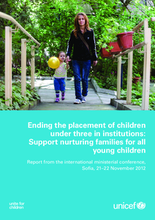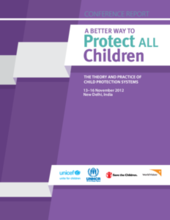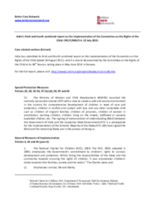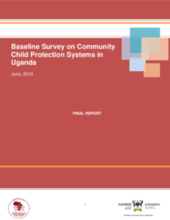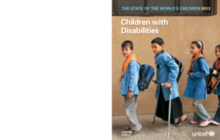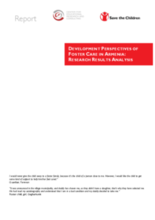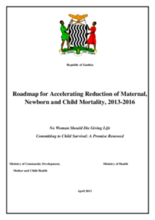Displaying 141 - 150 of 303
This Report from the international ministerial conference, held in Sofia, 21–22 November 2012, entitled 'Ending the placement of children under three in institutions: support nurturing families for all young children', brings together the presentations, political commitments and priority actions identified by the participants, including 20 governments from Eastern Europe and Central Asia.
This report of a major conference held in New Delhi in November 2012 entitled “A Better Way to Protect ALL Children: The Theory and Practice of Child Protection Systems”, encapsulates the substantive content of the presentations and related discussion; provides an analysis and documents the journey; and suggest an agenda, or at least direction, for future work on Child Protection systems.
This study funded by Big Lottery and undertaken in partnership between the University of Bristol and Buttle UK, a grant-giving charity for vulnerable children, aims to fill gaps in understanding about the experiences of children living with kins, and in particular how children in informal kinship care view their situation.
India submitted its third and fourth combined report on the implementation of the Convention on the Rights of the Child.
This report describes the process, findings and recommendations of the baseline survey for the project titled, “Building and Strengthening Community-Based Child Protection Systems in Busoga and Acholi sub-regions” commissioned by ANPPCAN. The baseline survey was intended to establish the status of project indicators so that the information obtained can inform the implementation of project activities.
In its 2013 State of the World’s Children Report, UNICEF has chosen to highlight the particular issues, needs, and circumstances of children with disabilities worldwide. The report includes a description of the common issues that children with disabilities face, models for inclusive policy and practice, and an agenda for action moving forward.
This 5-minute animated video depicts a theory of change for achieving breakthrough outcomes for vulnerable children and families. It describes the need to focus on building the capabilities of caregivers and strengthening the communities that together form the environment of relationships essential to children’s lifelong learning, health, and behavior.
This report produced by the Center for Educational Research and Save the Children summarises a broader research study which examined the foster care pilot programme introduced in Armenia in 2005. The study aimed to find out if the pilot program succeeded, what problems arose, how the program could be improved and how foster care in Armenia could develop and expand effectively.
This Road Map is aimed at accelerating “the reduction of maternal, newborn and child mortality rates sufficiently in order to enable Zambia attain the set MDGs by 2015.”
This important assessment of foster care services in the Republic of Moldova explores the differences between the two main types of foster care services provided in that country, including in terms requirements and profiles of caregivers and of the children, the legal and policy framework underpinning them, including the legal status of the foster parent, as well as the allowances and benefits for each type of care

